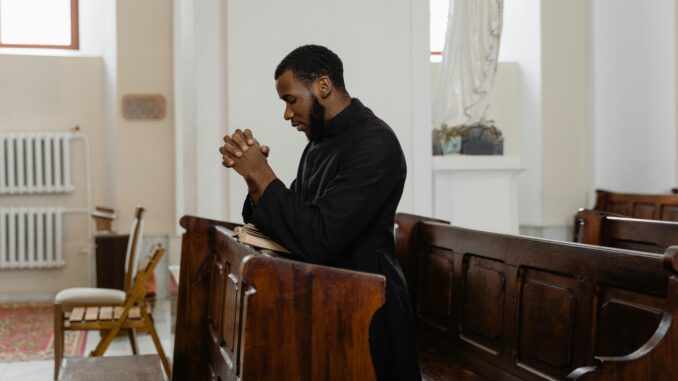
Worship is the heartbeat of the Church—a sacred rhythm that connects us to God and one another. While every culture expresses this rhythm in unique ways, African-American worship traditions hold a deep well of spiritual richness, history, and theological depth that have long influenced not only Black congregations but the broader body of Christ. These traditions, born from centuries of hardship, resilience, and joyful faith, have something powerful to teach the global Church today.
From spirit-filled preaching and expressive praise to call-and-response liturgy and soul-stirring gospel music, African-American worship offers a model of authenticity, community, and spiritual intimacy. It teaches us how to praise through pain, how to celebrate deliverance, and how to encounter the living God with both reverence and rejoicing.
Worship Rooted in Struggle and Hope
To understand the significance of African-American worship traditions, we must first acknowledge their roots. During the era of slavery, enslaved Africans were often forbidden from reading the Bible or gathering for worship. Yet, despite these restrictions, faith flourished in the shadows.
Through clandestine worship gatherings—often called “hush harbors”—enslaved people shared biblical stories, sang spirituals, and preached messages of hope and deliverance. These services were not just emotional outlets—they were revolutionary acts of resistance and hope, grounded in Scripture. The Exodus story, the Psalms, and the Gospels came alive in these gatherings, offering assurance that God had not forgotten His people.
This historical backdrop forged a worship tradition that was both deeply spiritual and socially aware. It taught that faith could endure the harshest trials and that worship could be a vehicle of healing and liberation.
Authenticity and Emotional Freedom
One of the most compelling aspects of African-American worship is its emotional honesty. In many Black churches, worship is not restrained or polished—it’s raw, real, and Spirit-led. Whether it’s tears of lament or shouts of joy, people are encouraged to bring their full selves before God.
This freedom invites worshippers to experience the presence of God in a deeply personal way. It models what David expressed in Psalm 34:1, “I will bless the Lord at all times; his praise shall continually be in my mouth.” Worship isn’t confined to a moment or a mood—it flows from the soul, regardless of life’s circumstances.
The Church as a whole can learn from this emotional openness. God desires worship that is not just intellectual, but heartfelt. As Jesus said in John 4:24, “God is spirit, and his worshipers must worship in the Spirit and in truth.” African-American worship reflects both truth and Spirit through vulnerability and authenticity.
The Power of Community
African-American worship is inherently communal. Services are not performances; they are participatory experiences. From the pulpit to the pews, everyone plays a part. The use of call-and-response preaching, for example, keeps congregants engaged, affirming and echoing biblical truths together.
This interactive style fosters a deep sense of belonging and shared spiritual journey. When someone testifies, the whole congregation responds. When the choir sings, the congregation joins in. Worship becomes a dialogue between God and His people—and among His people themselves.
The broader Church can benefit from this community-centered approach. In an age where individualism often seeps into worship culture, African-American traditions remind us that we worship best when we worship together—lifting one another up, bearing each other’s burdens, and rejoicing in unity.
Preaching with Power and Purpose
Preaching in the Black Church is more than a sermon—it’s a sacred event. It blends theology, storytelling, encouragement, and urgency in a way that connects deeply with listeners. Rooted in biblical authority and seasoned with personal experience, African-American preaching often emphasizes God’s faithfulness, justice, and power to deliver.
This tradition is also steeped in rhythm, tone, and cadence, drawing the congregation into the Word. Many preachers view the sermon not just as a teaching moment, but as an act of worship itself—a Spirit-filled declaration of God’s truth.
In a time when sermons can become overly academic or detached, African-American preaching reminds the Church that the Word of God is alive. Hebrews 4:12 tells us, “For the word of God is alive and active…” The Church can embrace this dynamic approach to preaching, making space for the Holy Spirit to move in both preacher and people.
Music That Moves the Soul
Gospel music is one of the most recognized and celebrated contributions of African-American worship. Rooted in spirituals, blues, jazz, and soul, gospel music speaks to the human experience in profound ways. It uplifts, convicts, and comforts—all while pointing to the glory of God.
Whether it’s the solemn call of “Precious Lord, Take My Hand” or the triumphant joy of “Oh Happy Day,” gospel music draws worshippers into a deeper awareness of God’s presence. It is a genre that doesn’t just entertain; it ministers.
The global Church has already embraced much of this musical tradition, but there is more to learn from its roots. Gospel music teaches us to sing our testimonies, to declare God’s goodness even in suffering, and to let music be a vessel of healing and praise.
Testimony and the Power of Story
African-American worship often includes time for testimony—space for individuals to share what God has done in their lives. These personal stories build faith, foster connection, and remind everyone that God is still at work.
In Revelation 12:11, we read, “They triumphed over him by the blood of the Lamb and by the word of their testimony.” Sharing testimonies is not just tradition—it’s spiritual warfare. It breaks chains, builds bridges, and strengthens the body.
The wider Church can benefit greatly by incorporating testimonies more frequently into worship. Every believer has a story worth telling, and every story has the power to encourage someone else.
Perseverance and Praise
At its core, African-American worship is a testimony of perseverance. It is praise born in the valley, thanksgiving sung through tears, and joy that rises out of ashes. It reminds us that worship is not a luxury of the blessed but a lifeline for the broken.
This tradition teaches the Church that lament and celebration are not opposites—they often coexist. As Psalm 30:5 says, “Weeping may endure for a night, but joy comes in the morning.” Worship becomes both a cry for help and a shout of victory.
Many of these worship traditions continue to thrive in every corner of the nation—from country congregations to the heart of the city. You can experience their richness firsthand in any number of gatherings, whether it’s a historic cathedral or a vibrant Christian church.
African-American worship traditions offer the global Church a sacred gift: a theology of hope, a rhythm of resilience, and a community of celebration. They remind us that the Church thrives not when it’s polished and perfect, but when it’s honest and alive with the Spirit of God.
As churches across cultures seek to grow in authenticity, unity, and passion, they would do well to sit at the feet of these traditions—learning, honoring, and integrating the richness they hold.
We are one body, many members (1 Corinthians 12:12), and each part has something to teach the others. African-American worship has long modeled what it means to love God with all the heart, soul, mind, and strength—and to do so together, through every season of life.
May we, as the Church, be humble enough to learn, bold enough to adapt, and grateful enough to give honor where honor is due. In doing so, we not only enrich our worship but also take one step closer to the unity for which Jesus prayed: “that they may all be one” (John 17:21).

